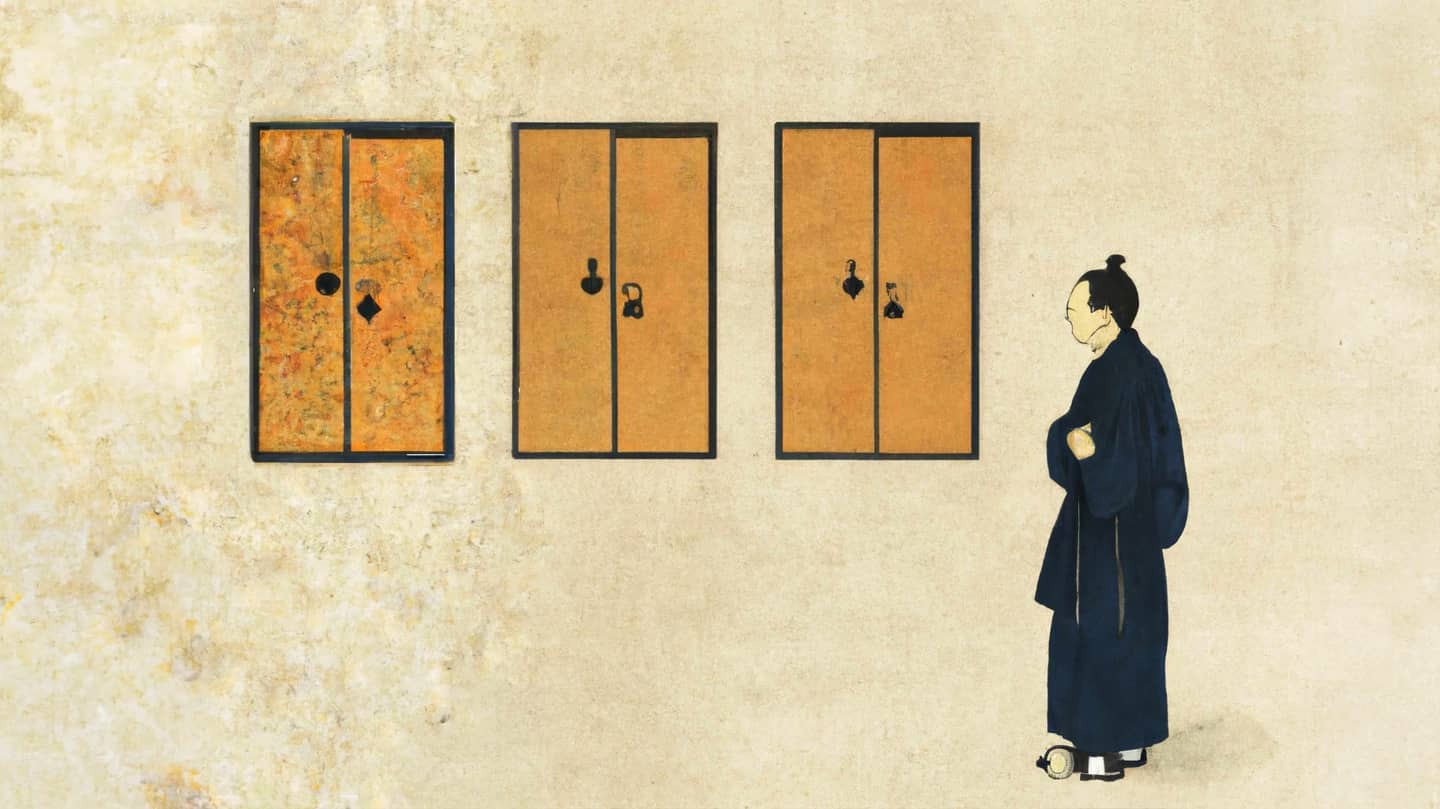Zen and the Three Door Problem
About the differences between intuitive and deliberate thinking.

A student came to see a Master, and said “Master, I am confused. My class is learning Gambling Theory, and I am already struggling with our very first assignment.”
“Why don’t you tell me more,” said the Master.
"Well Master, our Teacher asked us to imagine standing in front of three closed doors. We’re told that behind one of the doors lies a gold bar. Behind the other two doors is nothing. We are invited to pick one of the three doors. If we pick the right door, the gold is ours.
After we make our choice, the Teacher will open another door, without gold of course. Then, she will give us a chance to switch doors if we want to.
Now the question is, should we stay put or should we switch doors?"
“And what do you think is the right answer?”
“To stay put, Master. I suspect it is a trick question. The Teacher is probably just testing our steadfastness.”
“No, my Son. She is helping you.”
“How is she helping us, Master?”
“Let’s discuss the odds. At first, when you chose a door, your chances of picking the gold were…?”
“One out of three, Master,” said the student.
“That’s right,” said the Master. “You had no reason to prefer any one door over another. But by opening another door, the Teacher gives you valuable new information.”
“What information would that be, Master?”
“Let’s say that you picked a door with nothing behind it. The odds of that happening were…?”
“Two out of three, Master. Two doors have nothing, one has the gold.”
“Exactly. So in that case, where do the remaining doors lead to?”
“One to nothing, one to the gold, Master.”
“So how many doors can your Teacher choose from?”
“Only one, Master. I’m standing behind one door with nothing, so there is only one left.”
“And the other door?”
“The other door has the gold, Master.”
“Exactly. Thus, by switching to that other door, you increase your odds of winning to two out of three.”
“Whereas they remain one out of three if I stay put. Now I understand.”
The student stayed quiet for a while, and the Master said: “You still seem troubled, my Son.”
“Yes, Master. I am troubled because I was misguided by intuition. What good is our intuition if we can’t trust it?”
“We can trust it sometimes. Imagine walking through a forest and hearing a twig snap, somewhere in the distance. What would your intuition tell you?”
“To run for my life, Master.”
“Which would probably be a good idea. And how much time would you need for deliberation?”
“No time at all, Master. I would know to run immediately.”
“Indeed, my Son. Our intuition works very quickly. It trades accuracy for speed. Given that, when would a deliberate decision be better?”
The student thought for a moment.
Under a nearby tree, two monks sat on opposite ends of a Shogi board, an hourglass on the side. They sat in quiet contemplation, thinking about their next moves. Eventually, one of them moved a piece on the board and turned the hourglass.
At that moment, the Student understood.
He looked to the Master, and said: “When there is time?”
Further reading
- Wikipedia article on Bayes’ Theorem
- Wikipedia article about the three door (Monty Hall) problem
- Book Thinking, Fast and Slow by Daniel Kahnemann, ISBN 9780374533557